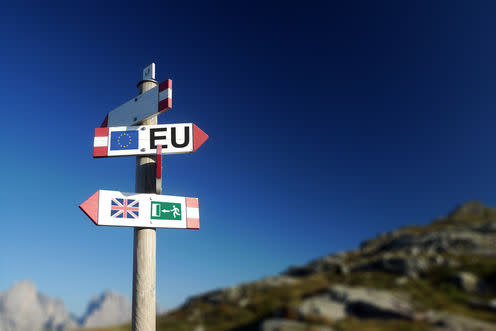Brexit Britain and trade – this is where it gets tricky

The triggering of Article 50 of the Treaty on the European Union by Theresa May finally signals the end of the phoney war on Brexit. For months, members of the British government have talked up the prospects of the UK outside of the EU and rejected concerns regarding the loss of unrestricted market access to its closest neighbours and biggest trade partner.
Soon the negotiations will begin. Not just on a withdrawal agreement, but also the contours of the UK’s future trading relationship with the EU post-Brexit.
Theresa May has already set out the broad outlines of the type of relationship she wants with the EU. The idea that the UK could continue as a member of the single market is not tenable given the government’s insistence on doing away with EU free movement rules and the jurisdiction of the European Court of Justice. Likewise, a customs union that sets a common external tariff is not a realistic option, as the UK wants to conduct its own trade relationships, without any restrictions.
This means that, at best, the UK will try to conclude a bilateral agreement known as an association agreement with the EU. This would include a trade agreement and some elements of cooperation in areas such as internal and external security. There are, however, a number of difficulties associated with this approach, and a range of obstacles to be faced in the meantime.
Getting a deal
The government’s preferred option thus far is the signing of an “ambitious and comprehensive” free trade agreement in line with the recently concluded comprehensive economic trade agreement (CETA) negotiated between the EU and Canada. This would fall significantly short of providing the unfettered market access currently enjoyed by British firms through the single market.
One of the unique features of the single market – which sets it apart from other regional economic integration projects – is the application of the principle of mutual recognition. It means that if something is lawfully manufactured in one member state, there is no reason why it should not be sold in another member state. This is the fundamental principle that underpins free movement of goods within the EU.
In a free trade agreement, this would no longer be the case. Tariffs on exports would likely be eliminated, but exporters would face a multitude of barriers in the form of non-tariff measures. These include rules of origin and requirements for conformity assessments of goods. Such barriers will vastly increase the level of bureaucracy and cost of selling UK goods in the EU.
The EU single market in services remains, by comparison, relatively fragmented. But there are numerous service sectors and professions whose rules are harmonised at the EU level and where UK firms benefit from mutual recognition. This mutual recognition would be lost outside of the single market, and services are typically barely touched upon even in the most far-reaching and comprehensive modern trade agreements.
There has been talk of mutual recognition agreements in key areas such as car manufacturing and financial services but such agreements are fraught with legal and political difficulties.
The WTO nightmare
All of these difficulties pale in comparison to the nightmare scenario where the UK reverts to the World Trade Organisation’s most-favoured nation terms of trade. There is nothing favourable about this – it means the UK would be treated the same as any other of the 164 WTO members, without being granted any special status.

This means paying the maximum allowed tariffs and tariff-quotas under WTO law while, at the same time, facing the full gamut of non-tariff barriers imposed by the EU. The UK would be trading with the EU on worse terms than countries such as the US and China who at least benefit from some mutual recognition arrangements with the EU. The prospect of trading with the EU on the same terms as the likes of Mongolia may not seem like a terrible ordeal for some, but for UK firms moving from unrestricted access to the EU market to trading on WTO terms, this will prove an expensive and challenging exercise.
Unrealistic time frame
Most crucially, there is the rather awkward issue of timing. Article 50 provides that the departing member state and the EU have two years to negotiate a withdrawal agreement – that is, an agreement dealing exclusively with the disentangling of the UK’s relationship with the EU. Such an agreement would focus on highly sensitive and complex issues such as the status of EU and UK migrants, as well as issues such as the UK’s liabilities under the EU budget.
Two years is also the timeline that the British government has given itself to finalise the negotiation on a trade agreement, as well as withdrawal. This is an unrealistic time frame.
With the main EU players such as France, Germany and the Netherlands focused on their own domestic elections this year, it is unlikely that much progress will be made before the close of 2017. A two-year deadline for a withdrawal agreement alone is already very ambitious. To add a trade agreement to this list when the process for negotiating such an agreement with the EU is notoriously lengthy – it took seven years to negotiate the EU-Canada deal – puts the two year trade agreement deadline in the realm of the imaginary.
The question then becomes whether the UK government will stick to its guns and crash out of the EU without the safety net of a trade agreement – or whether it will bite the bullet and accept the possibility of agreeing to some sort of transitional arrangement that would inevitably postpone Brexit. It is a choice which will have to be made sooner rather than later.
This article was originally published on The Conversation. Read the original article.

Billy Melo Araujo receives funding from the British Academy.

 Yahoo News
Yahoo News 